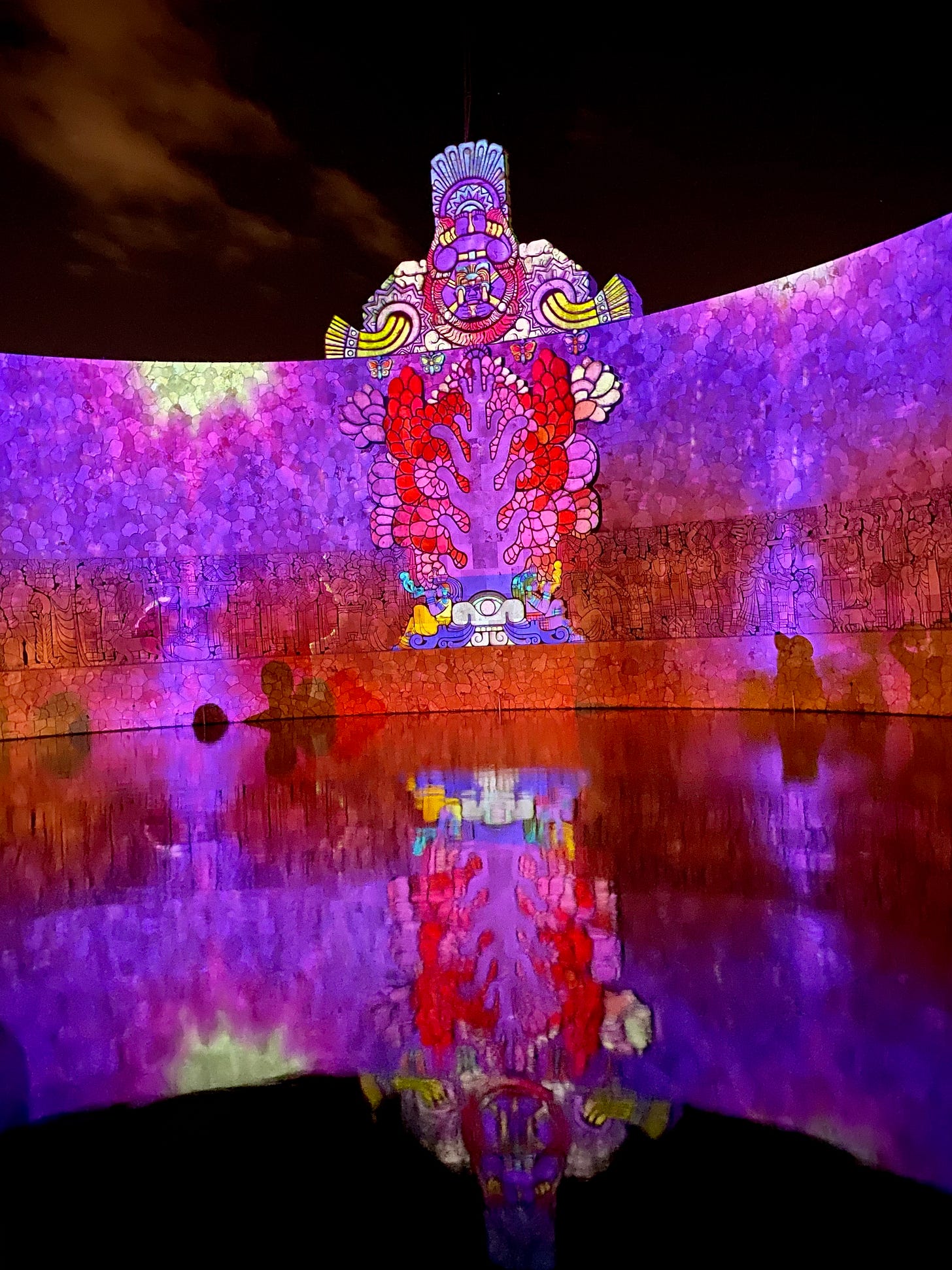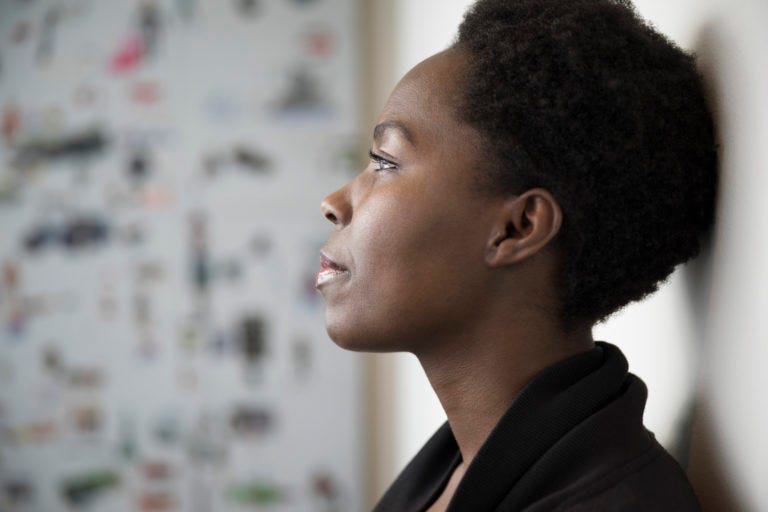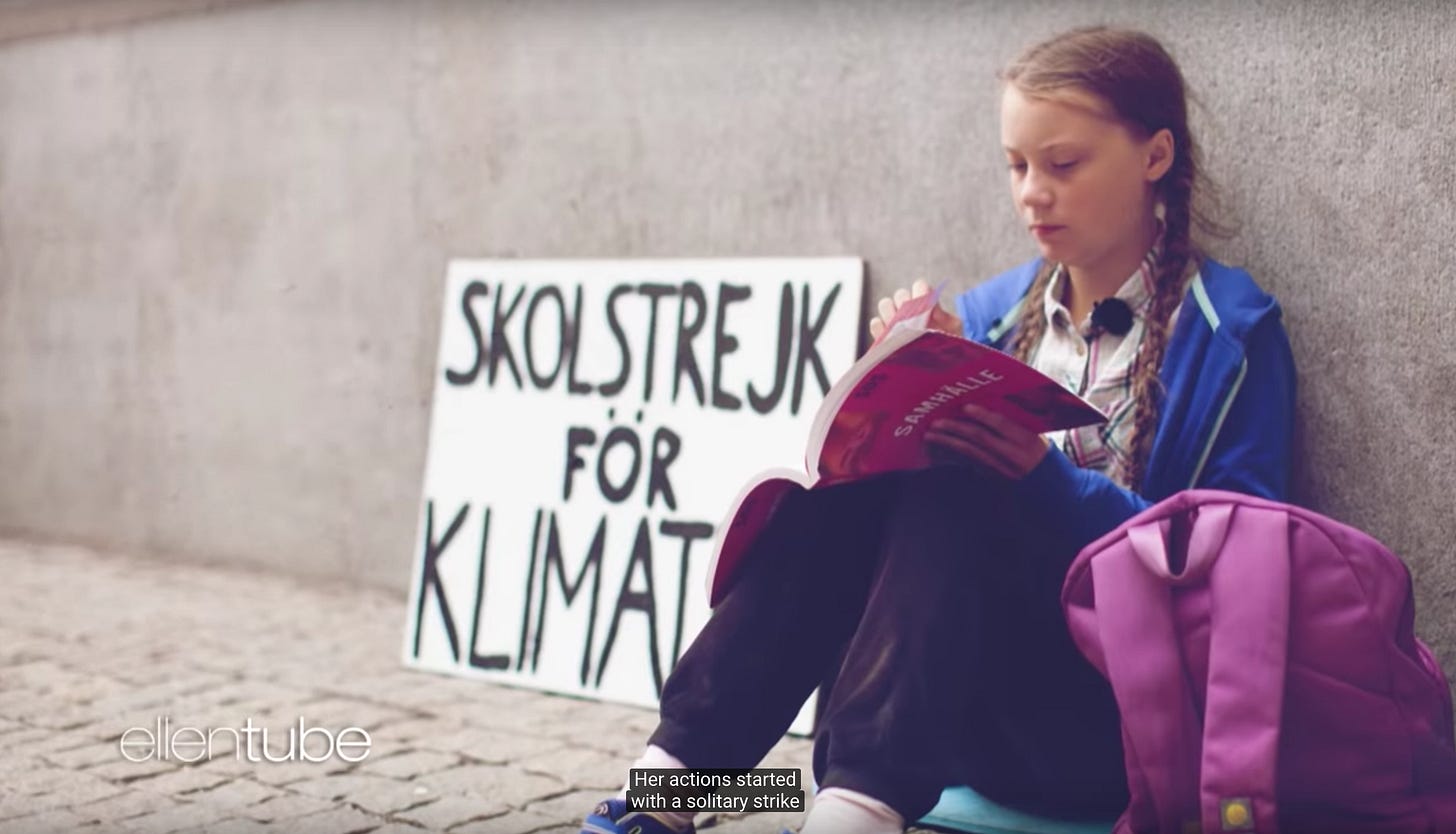Welcome to CxD Issue 100! I’d love to hear from y’all about any impact that CxD might have had on your lives thus far and what you’d like to see less or more of. If you’d like CxD to stay exactly as it is, just comment with a donut emoji.
(Comment section is open only to subscribers, so, umm, don’t not be a subscriber! Instead, let’s build a community of characters with character!)
1. The Day of the Dead celebration in Merida, Mexico is where I recently discovered how one culture brings death to life: with color, play, and lots of face painting and the dead walking everywhere.
Avoiding death is not healthy for our character. Recognizing that death is exquisitely interwoven with life is the way.
What is it about death that scares you? What would happen if you celebrated it instead?

2. I listened again to this exquisite interview with angel Kyodo williams and had to pull over to replay––several times––how most people define love and how angel tries to experience it instead. If I had only one thing to teach people about Zen, this is it. Below is the transcript of that portion of the conversation, but the entire conversation is… so… spacious!

Ms. Tippett:I’m Krista Tippett, and this is On Being. Today, with Zen priest and social visionary, angel Kyodo williams.
Ms. Tippett:I want to, also, talk to you about love. You first got thinking about love with bell hooks. And I have to say, I think we forget, but we may be remembering that the great, not just spiritual geniuses but social reformers have used this “L” word, “love.” And it was absolutely central to the civil rights movement. And I hear this word surfacing everywhere, and also an attention to how we have to — how we have to revive it, how we have to fill it with connotations that take in the complexity of us and the hardness of what’s before us. You’ve been thinking about this, the role of love in movements, I think, for a couple of decades. And I wonder how your thought on that — also, what you see in the world — is evolving right now.
Rev. williams:I think you were pointing towards it. bell — and reading bell and getting an opportunity to meet bell, also — gave me a lens into the possibility of love being something that I could — not only “could,” I want to say — that I had to bring into the language of my perception of the world; and that love was not to be limited to my bedroom or my family and just people that I thought that I liked; that what I was doing in the past and what we often do and what our culture calls us to do is to use love to be a quantifier of “Do I have a preference for you?” [laughs]
Ms. Tippett:That’s really well put.
Rev. williams:“Am I aligned and in agreement and affinity? Are you reflecting back at me what I want to be reflected back at me? And if you are, and if you are enhancing my idea of myself, [laughs] then I love you.” And bell opened up the idea that that was a very limited way of understanding — and she still does — that that’s a limited way of understanding love.
The way that I think of love most often these days is that love is space.
Ms. Tippett: Say some more about that. What do you mean?
Rev. williams: It is developing our own capacity for spaciousness within ourselves to allow others to be as they are — that that is love. And that doesn’t mean that we don’t have hopes or wishes that things are changed or shifted, but that to come from a place of love is to be in acceptance of what is, even in the face of moving it towards something that is more whole, more just, more spacious for all of us. It’s bigness. It’s allowance. It’s flexibility. It’s saying the thing that we talked about earlier, of “Oh, those police officers are trapped inside of a system, as well. They are subject to an enormous amount of suffering, as well.”
I think that those things are missed when we shortcut talking about King, or we shortcut talking about Gandhi. We leave out the aspects of their underlying motivation for moving things, and we make it about policies and advocacy, when really it is about expanding our capacity for love, as a species.
3.

Greta Thunberg seems to me like one of the most reasonable people on this planet. It took her very little time on earth to identify a problem and then to act skillfully to solve it. She identified principles important to her and lives by them. Watch this inspiring interview with her in which she explains how being different makes it easier to act differently.
What boxes have you conformed to? Who put you into those boxes? Where is your inner Greta Thunberg?
4. Current Stack of Treats! Who wants to read them and play and discuss?




Appreciate the quotes that you bring to the page ! Always thoughtful and fresh.